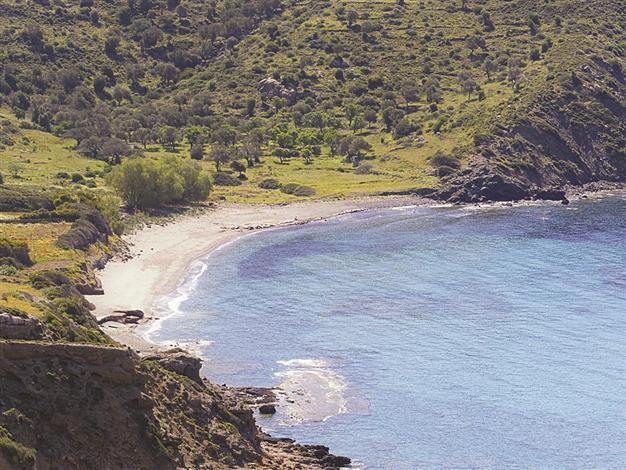Ecological agriculture plans in Datça peninsula may pave way for villas with swimming pool
ANKARA - Radikal
 Controversy over the Environment Ministry’s recently revised landscape plan for Turkey’s idyllic Datça peninsula is growing, with a new report by daily Radikal revealing that arrangements allegedly made for the development of ecological agriculture would, in fact, pave the way for the construction of villas with swimming pools.
Controversy over the Environment Ministry’s recently revised landscape plan for Turkey’s idyllic Datça peninsula is growing, with a new report by daily Radikal revealing that arrangements allegedly made for the development of ecological agriculture would, in fact, pave the way for the construction of villas with swimming pools. The report also said the plan was conducted with poor coordination with local administrators as the archaeological sites on the peninsula were either neglected or mistakenly indicated on the documents, meaning that new landscape regulation did not match legal restrictions that depend on the classification of the sites.
The government’s new initiative to boost mass tourism in one of the country’s best-preserved peninsulas – depicted as a paradise by the late, acclaimed poet Can Yücel – has sparked fresh debates, particularly after ruling Justice and Development Party (AKP) deputy head and spokesman Hüseyin Çelik accused critics of provoking the public.
“Those reports were full of mistakes. They are trying to provoke the Gezi [protests],” Çelik told reporters May 9, after reports underlined that the new plan would be a death sentence for the quiet resort as it could open its renowned coasts to the mercy of five-star hotels always seeking to privatize sandy beaches.
“Those days [of Gezi-style protests] are over. Do not be hopeful,” Çelik added defiantly.
Muğla province objects plan’s ambiguities
Local administrators of Muğla Metropolitan Municipality have objected to the plan, according to Radikal, underlining that the criteria for the changes made were unclear. Officials also claimed that the details regarding the size of doors and windows was contrary to the concept of landscape master plans.
According to the municipality, details regarding the housing areas could be used to ultimately develop ecological agricultural land and construct luxury villas.
The plan states that in some areas, “tourism construction with a minimum of 45 square meters of base area and a maximum construction zone of 150 square meters,” provided it is not “two floors,” could be built. It also adds that the projects could include “a swimming pool of less than 30 square meters.”
Local administrators state that such constructions contradict the aim of protecting agricultural areas but would instead open the way for “tourism based on resort homes with gardens whose only purpose would be for hobby vacation and would be devoid of any agricultural benefit.”
Local administrators also underline that the new plan was prepared without regard to the actualized classification of archaeological site areas, adding that some first-degree sites where no construction is allowed did not even figure in the documents.
The uproar caused by the plan has also prompted locals to launch an online petition campaign, calling for the preservation of the coastline in Bozburun, Datça, Mesudiye and Palamutbükü. Locals collected 25,000 signatures to express their concerns about the new plan, which also includes construction of a marina near the ancient Greek city of Knidos, located on the extremity of the peninsula separating the Aegean Sea from the Mediterranean.
















